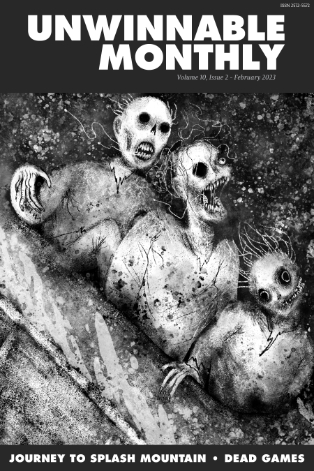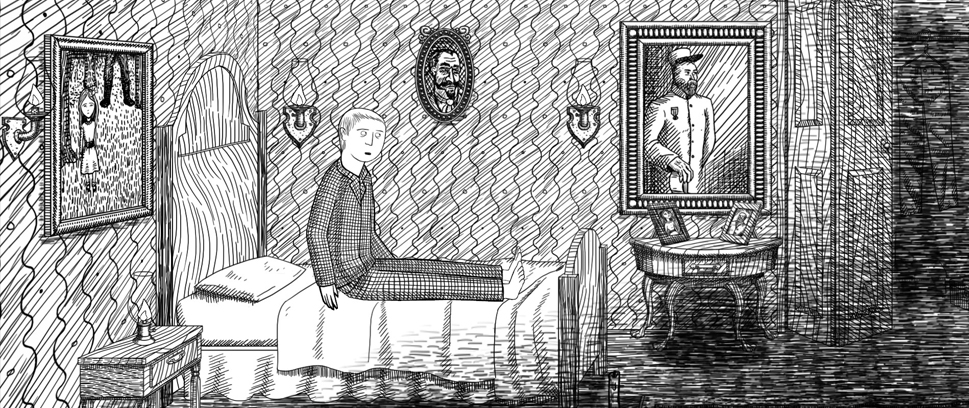
Dead Space’s Unsettling Colonialism

This column is a reprint from Unwinnable Monthly #160. If you like what you see, grab the magazine for less than ten dollars, or subscribe and get all future magazines for half price.
———
We are what we’re afraid of.
———
Dead Space is one of my favorite games of all time. It was actually my introduction to the genre of horror games; I became a teenager during the PS3/Xbox 360 console generation and prior to that, my parents had kept a tight handle on the sorts of games I had been allowed to play. So, while other people can point to Resident Evil or Silent Hill (both titans, which I played and enjoyed later as an adult) as the start of their horror game fixation, the genesis of my love is and always will be with Isaac Clarke on the Ishimura. So, this most recent remake gladdens me, because I think the franchise is very deserving of the change to be revisited with state-of-the-art technology. But if you’ve been reading this column, like, at all, you know that the praise must always be coupled with loving criticism.
The column last month discussed the legacy of horror videogames in relation to Lovecraftian and cosmic horror, and how this means that the game is often working unintentionally with themes with pretty untenable origins in racism and xenophobia. But that’s not the only place from which horror games draw inspiration. Space-based horror in particular, since it also leans necessarily into the territory of science fiction, bears a lot of similarity to the genre of “weird fiction,” which mostly exists today in the form of old-school pulpy sci-fi paperbacks. These stories, like Edgar Rice Burroughs’ The Mars Chronicles, generally involve a white human man being transplanted into some exotic locale – a lost civilization inside a jungle, the deepest parts of the ocean, or an alien planet – and having to wreck shop on the locals after he realizes that they are brutal, warlike and generally primitive or otherwise unenlightened. The natives/aliens are always somehow inferior (despite probably being technologically superior to humanity), and generally are also depicted as objectively evil, thus necessitating our (white, male, straight) human hero swooping in to conquer and lead them all as a benevolent god-king. The xenophobia, as the youth say, jumps out.

What this means is that most instances of weird fiction are hypermasculine power fantasies, which then means that they tend to pair really well with the mechanical and narrative sensibilities of videogames, a medium that has evolved in a lot of ways to serve said power fantasies. This is an interesting contrast with the modus operandi of horror games, which is to subvert this dynamic and place the player in a position of relative powerlessness. Dead Space, as a timely example, walks this line particularly well. The central conceit of Dead Space is a very typical one of this sort of settler-colonial narrative: white guys, meddling where they ought not (in this case, mining an alien planet), uncover an artifact that resurrects a type of alien lifeform, called the Necromorph. True to their names, the Necromorphs kill people, then “corrupt” the dead human tissue and reanimate it, turning normal people into extra-limbed horrors with zero cognitive capacity. This idea, that alien life is necessarily not only malicious, but intends to corrupt and destroy the “purity” of humanity, dates all the way back once more to Lovecraft (remember the fish-people from last month?) but is also a really famous trope of Ridley Scott’s Alien franchise (and the game Alien: Isolation). So while the aliens do spend a fair amount of time kicking Isaac’s ass to keep the power dynamic of a horror game intact, he is not only narratively but in a lot of ways morally bound to triumph, to preserve the sanctity of humanity and destroy the inherently awful Other.
Please note that this is not actually a “the Necromorphs aren’t so bad after all” argument – they definitely kill people and then walk around in their mangled corpses, so like, yeah they’re bad. What I’m commenting on here is that sci-fi, and thus games that rely on sci-fi themes, have a bad habit of painting humanity as the apex of morality and intellectualism in a galaxy of schmucks, con men and villains, and this lends itself easily to arguments about exceptionalism and supremacy for particular groups of people. Horror games just take the ideas of a lot of other sci-fi games (like Mass Effect, another thing I’ve written about for this publication) to their logical conclusion – not only is man the greatest and the best, but he deserves to dominate other forms of life, because he is the smartest and the most moral. When the man at the helm of this galactic conquest always conveniently happens to be white, the implications become even more obvious.
———
Emma Kostopolus is an Assistant Professor of English at Valdosta State University. Online, you can find her nowhere, but check out her film reviews for Ghouls Magazine and her recent article for Computers and Composition Online. She’s also the co-author of Ace Detective, a murder mystery dating sim you can play at oneshotjournal.com.




